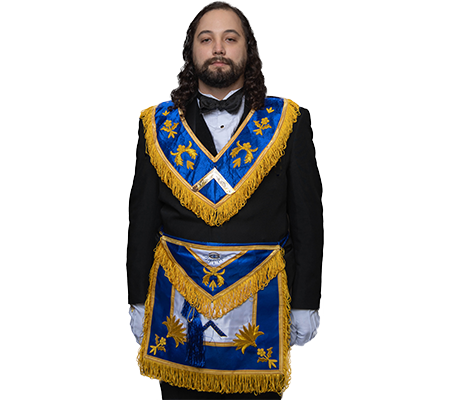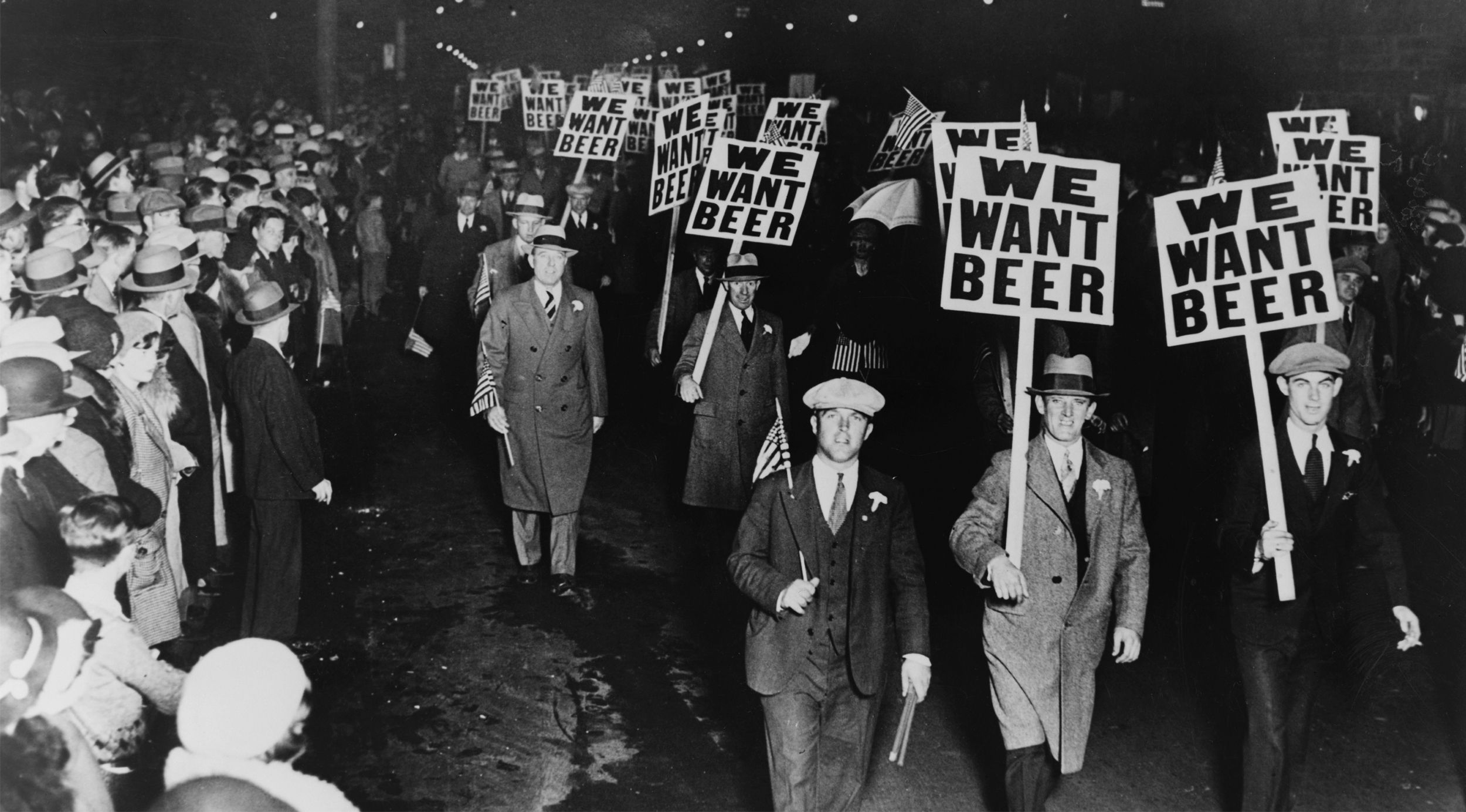
Greetings, Brethren! A happy April to you, along with the many days of observance and remembrance it brings. I’d like to open this month’s address with an amusing conversation I had recently: I was showing this year’s challenge coin to a friend of mine – the one that lists the four cardinal virtues on one side – and after looking it over, he said to me, “Temperance. So that’s like, what, not drinking alcohol?” I of course explained that that’s not the case – at least not entirely. Yes, to some brothers, abstaining from alcohol is indeed how the choose to practice temperance in their own lives, and all the more power to them. But I found it funny how the idea of temperance, like so many words, can get wrapped up in preconceived notions and altered by association with other words and movements (in this case, the anti-alcohol ‘temperance movement’ of the 20th century). This did, however, get me thinking about how best to explain what temperance means in both a philosophical and Masonic context, and such musings seemed as good a topic as any for this month’s address.

When attempting to define a word – and to untangle it from modern ideology – the origins of the word are always a good place to start. Temperance, like so many words in modern English, comes to us from Latin, (turns out we do owe a thing or two to the Romans,) specifically from temperantia, meaning ‘moderation’, itself derived from temperare, meaning ‘restrain’. So, in a word, temperance means practicing restraint and moderation. It falls in line with the practices of the ancient Stoic philosophers, (while we’re talking about the classical world,) whose way of living could be described as “everything in moderation, noting in excess.” I find the latter half of that saying particularly interesting in the manner in which it is phrased, as it could be read as “no one thing in excess,” or alternatively as “possessing an excess of noting”.
This is where I happen to break with the Stoics, as I don’t believe that possessing an “excess of absence” is necessary for living a truly temperate life. We all, of course, have our vices (and by ‘vices’ I mean things like ‘drinking, gabling, and staying up far too late,’ not ‘arson and burglary,’ which are crimes, so don’t mistake me here. I also want to differentiate ‘vice’ from ‘addiction,’ which is a different beast to which this conversation does not apply,) but we are not called to be perfect beings, utterly free from the temptations of vice. We are, however, called to be men who are in control of our vices and passions, rather than allowing them to control us, and the practice of temperance lends us the tools to do so. As an example (and as per the conversation that got me thinking on this in the first place,) many would consider alcohol a vice. And, while I am perhaps going against the grain a little here, I fully believe that practicing such vices in moderation is both preferable, and often necessary, to prevent them from being practiced in excess. After all, setting aside – just spitballing here – one night a month to grill and have some drinks with one’s Brothers, is far preferable to indulging in said vice sporadically, or whenever the opportunity arises. I am personally of the mind – though others are free to disagree – that “blowing off some steam” when it comes to indulging in a vice, such as having some drinks with my Brothers, taking the occasional (well budgeted) trip to Vegas, etc., help to free my own mind from such temptations as would otherwise be present. Knowing that I have a time and a place to practice them in temperate fashion means I need not try to grasp at opportunities to indulge in them otherwise.
(After all, there is a reason why the phase “blowing off steam” is a thing – anyone even passingly familiar with mechanical design will know that an excess buildup of steam can be a very bad thing, not merely for the machinery itself, but for any nearby people and infrastructure as well. Venting that steam is very necessary for keeping everything in working order, and that is why there are often several [literal] outlets for doing so.)
Conversely, I believe there is a very real reason why the virtues are listed in the order in which they are, namely: temperance, fortitude, prudence, and justice (and no, it’s not just because it gives them a nice tempo). I believe it is because the practice of temperance is essentially necessary to the practice of all other virtues. Not only is some degree of mental and physical fortitude entirely necessary to enable one to live a temperate life (ask anyone who has ever recovered from addiction,) but we must also be temperate in how we choose to practice fortitude. After all, fortitude is not masochism or recklessness. Fortitude is having to courage and wherewithal to cry out when you see a driver about to go down a one-way street. Fortitude is not throwing yourself from a balcony onto the hood of their car to stop them. As they say, there’s never cause to light yourself on fire in order to keep others warm. Prudence, as well, requires the tools of temperance to practice properly as well – how can we deem what is prudent, unless we know ourselves well enough to say where the lines stand between inadequate, enough, and too much?
Even justice, that attribute both moral and divine, must be subject to moderation and restraint – while a zealous love of justice is indeed an admirable quality, there is ever a fine line between zealotry for justice and plain zealotry. Failure to practice temperance in our relation to justice is how individuals become vigilantes, and how societies become mobs. This is, after all, why we have laws – even though we as individuals may disagree with how effective or well-planned any specific law happens to be.
Yes, you read all of that correctly – I am indeed saying that temperance is not only necessary for the proper managing of vice, but for the proper practice of virtue as well. After all, charity is a wonderful virtue, and one of the most important practices of the Craft. But, as the Wor. Carl H. Claudy points out in his “The Master’s Handbook” (a great read for incoming Worshipful Masters, as well as anyone who plans on being one,) if we were to liquidate all Lodge funds in order to put them toward relieving the distressed, then there would be no Lodge left afterwards – leaving both the present, as well as future distressed with no one to reach out to! The same could be said of giving blood: there’s a very good reason they don’t take it all in one go.

Speaking of that, Home Lodge is hosting a Red Cross blood drive on July 20th from noon to 6pm. It’s a great opportunity to do some good, and help remind everyone what a pillar of the community the Lodge is and can be. They need a certain number of signatures to get the ball rolling, so don’t hesitate to reach out to Home Lodge if you would like to participate. Just don’t give too much. We’d still like you to be able to keep coming to Lodge afterwards.
I’d like to conclude by saying that, as with all virtues, temperance must apply not only within and without the Lodge, but in our relation to the Lodge as well. If you find yourself burning out, or over-committing to the Lodge to the point that it is negatively affecting your life, then reach out to the Brothers – I promise there is no burden around the Lodge so great that we can’t take it off your shoulders while you rest and recharge. Masonry is meant to be a supplement to you interactions with your job, family, and community, not to supplant them. Conversely, if you haven’t been around in a while, we would love to see you work in the time to come back again, even if just for a night every now and then. I know a lot has changed in the last few years, and the Lodge doesn’t occupy the same place in everyone’s schedule as it used to. But you don’t need to commit to coming to every single meeting and function right out of the gate. Just coming to one meeting or event soon would be enough, and you might even see what you’ve been missing out on. I look forward to seeing you there.
Yours in Moderation,
Dillon T. Ingram,
Worshipful Master
North Hollywood Lodge 542, Free and Accepted Masons of California.
